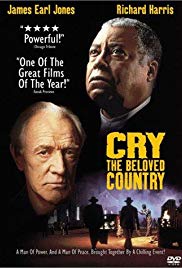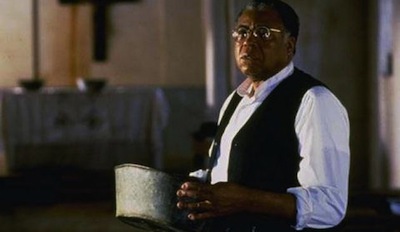GRIEVING
1. Give some examples of the different ways that a parent can react to the death of a child?
Suggested Response:
No matter how a parent loses a child, the loss is something that you never get over. In many cases, parents channel their grief into good causes that their child believed in, such as the farmer and the Biehl’s. In other cases, parents can fall into depressions and a deep sense of loss, which they never recover from.
2. How did the farmer grieve for the death of his child?
Suggested Response:
The farmer grieved for the death of his child by helping the black people of the village where his son’s killer grew up. He provided them with milk, plans to build a new church and a year-round water supply.
CRIME
3. Do you think that the young black men who killed the farmer’s son would have cared that he was trying to help their people?
Suggested Response:
It is possible. The son recognized that he was following the wrong path in life and after his stay at the boy’s institution he tried to stay lawfully employed. However, returning to crime might have seemed easier than staying employed legally.
4. List the persons who were the victims (stakeholders) in this murder.
Suggested Response:
The list should include the family of the victim, the family of the perpetrator, and society as a whole. For example, the family of the victim, including the farmer and the victim’s children and wife. The minister and his wife (the son’s father) and the son’s wife and unborn child. Also, the man who had supported the perpetrator when he was in the work institution. This leads to the entire society because it elevates the thought that the blacks in South Africa were criminals and unchangeable, ultimately, deserving of their place under apartheid.
Discussion Questions Relating to Ethical Issues will facilitate the use of this film to teach ethical principles and critical viewing. Additional questions are set out below.
RESPECT
(Treat others with respect; follow the Golden Rule; Be tolerant of differences; Use good manners, not bad language; Be considerate of the feelings of others; Don’t threaten, hit or hurt anyone; Deal peacefully with anger, insults, and disagreements)
1. How did the white farmer change his attitudes toward blacks during the course of the film?
Suggested Response:
The farmer began to have respect, tolerance, and compassion for the black people around him.
CARING
(Be kind; Be compassionate and show you care; Express gratitude; Forgive others; Help people in need)
2. Write a new ending to this film describing what would have happened had the fathers not been willing to forgive each other?
Suggested Response:
Had the fathers not been able to forgive each other- the ending to the story would not be peaceful. Although, the novel deals with severe tragedy, in the end, there is a sense of hope for the future. If the fathers had not forgiven each other, it would have accelerated the problems of violence and hatred that already existed.



